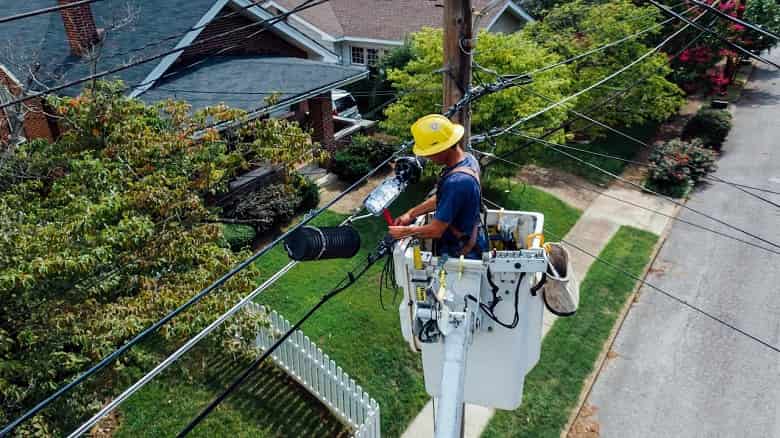Embarking on a career as an electrician can be a rewarding and promising choice for individuals interested in working with technology. If you aspire to become an electrician, there are several pathways you can explore to kickstart your career. This article will discuss six ways to begin your journey as an electrician. By understanding these options, you can make an informed decision that aligns with your goals.
Ways to Begin Your Career as an Electrician
1. Formal Education and Apprenticeships
One of the most common paths to becoming an electrician is through formal education and apprenticeships. Many vocational schools, community colleges, and trade schools offer comprehensive programs that provide theoretical knowledge and hands-on training in electrical systems. These programs typically cover topics such as electrical theory, circuitry, wiring techniques, electrical code regulations, and safety protocols.
Completing an apprenticeship is an essential part of this educational route. Apprenticeships allow aspiring electricians to gain practical experience under the guidance of experienced professionals. Through apprenticeships, individuals can refine their skills, learn industry best practices, and develop a deep understanding of electrical systems in real-world settings. This combination of formal education and on-the-job training, like with an electric company in Utah or another organization, lays a strong foundation for a successful career in this field.
2. Union Apprenticeship Programs
Another avenue to consider is enrolling in a union apprenticeship program. Labor unions, such as the International Brotherhood of Electrical Workers (IBEW), often have structured apprenticeship programs designed to train and develop electricians. These programs provide a comprehensive curriculum, combining classroom instruction with hands-on training.
Union apprenticeships offer several benefits, including competitive wages, benefits packages, and job security. Additionally, they provide opportunities to work on large-scale projects and gain exposure to diverse electrical systems. Union membership can also offer ongoing professional development and networking opportunities, helping electricians build a strong foundation for long-term success.
3. Military Training
For individuals with a background in the military, transitioning to a career as an electrician can be a viable option. Many branches of the military offer specialized training programs in electrical work. These programs equip service members with valuable skills and knowledge in electrical systems, providing a solid foundation for a civilian career as an electrician.
Furthermore, military veterans often have access to various educational and financial assistance programs, such as the GI Bill, which can support their transition into the civilian workforce. Leveraging military training and support can be an effective way to enter the field of electrical work.
4. Trade and Industry Associations
Trade and industry associations play a vital role in the electrician profession. These organizations provide resources, training programs, and networking opportunities for both aspiring and established electricians. Joining a trade association, such as the National Electrical Contractors Association (NECA) or the Independent Electrical Contractors (IEC), can offer valuable benefits for individuals starting their careers in electrical work.
These associations often provide access to educational resources, apprenticeship programs, and industry-specific certifications. Additionally, they serve as platforms for connecting with experienced professionals, potential mentors, and job opportunities. Actively engaging with trade and industry associations can significantly enhance your prospects as you begin your journey as an electrician.
5. Industry Certifications and Licenses
Obtaining industry certifications and licenses is a critical step toward establishing credibility and professionalism in the field of electrical work. While specific requirements may vary depending on the region and type of electrical work, certifications such as the Journeyman Electrician or Master Electrician licenses demonstrate a high level of competency and expertise.
Additionally, manufacturers of electrical equipment often offer product-specific certifications. These certifications validate your knowledge and proficiency in installing, maintaining, and troubleshooting specific electrical systems and equipment. Investing in industry certifications not only enhances your skills but also boosts your employability and opens doors to a wider range of job opportunities.
6. Networking and Practical Experience
Building a strong professional network and gaining practical experience are crucial elements in launching a successful career as an electrician. Actively seek opportunities to connect with professionals in the field, such as attending industry events, joining online forums, or participating in trade association activities. Networking allows you to learn from experienced electricians, gain insights into the industry, and potentially secure job opportunities.
Furthermore, gaining practical experience through internships, volunteer work, or part-time jobs can provide valuable hands-on exposure to electrical systems. Practical experience helps solidify theoretical knowledge, develop problem-solving skills, and build a portfolio of work that showcases your abilities to potential employers.
Conclusion
Embarking on a career as an electrician offers numerous opportunities for personal growth, professional development, and job stability. By taking advantage of the various pathways available, aspiring electricians can kick start their careers with confidence, ensuring a promising future in the dynamic and essential field of electrical work.
